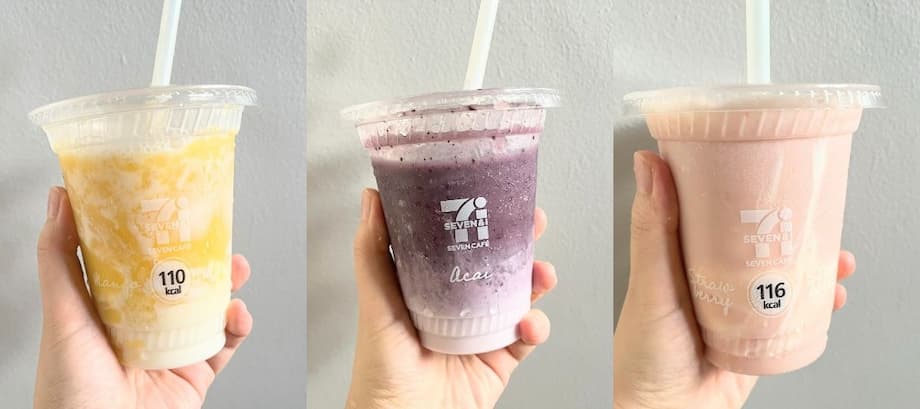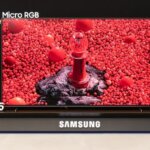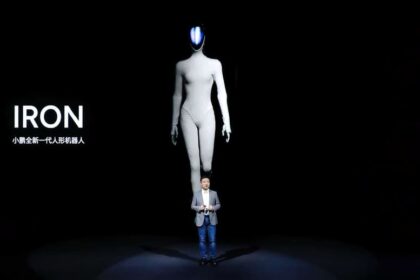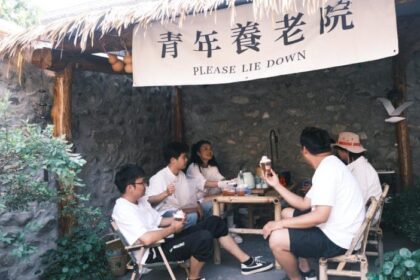Japan’s 7-Eleven Smoothie Hack: A Viral Trend Redefining Convenience Store Drinks
Japanese convenience stores, or konbini, are renowned for their innovation, quality, and ability to surprise even the most seasoned shoppers. Among the latest trends to sweep social media is a creative hack involving 7-Eleven’s make-it-yourself smoothies. What began as a simple in-store beverage has evolved into a customizable treat, thanks to inventive customers and viral online sharing. This article explores the origins, variations, and cultural impact of the 7-Eleven smoothie hack, offering a comprehensive look at why this trend has captured the imagination of Japan and beyond.
- Japan’s 7-Eleven Smoothie Hack: A Viral Trend Redefining Convenience Store Drinks
- How 7-Eleven’s DIY Smoothies Work
- The Viral Hack: Transforming Smoothies with Yogurt Drinks
- Why Are Japanese Convenience Store Hacks So Popular?
- Limited Editions and Secret Menu Items: The Broader Smoothie Craze
- How 7-Eleven’s Smoothies Compare to Other Brands
- Creative Food Hacks: A Broader Trend in Japanese Convenience Stores
- Health, Nutrition, and the Future of Convenience Store Drinks
- In Summary
How 7-Eleven’s DIY Smoothies Work
7-Eleven Japan has long been a leader in convenience store innovation, with its Seven Café line of drinks—especially coffee—serving as a major draw for customers. In 2022, the chain quietly introduced a new product: make-it-yourself smoothies. These smoothies are found in the freezer section, often near ice creams rather than with other beverages, making them a hidden gem for those in the know.
Each smoothie cup contains frozen fruit, yogurt, and other ingredients, visible through the clear packaging. After purchasing a cup, customers use a dedicated blending machine near the register. The process is simple:
- Scan the cup’s barcode at the machine
- Remove the lid and place the cup inside
- Press the button and wait as the machine blends the ingredients into a fresh smoothie
- Attach a lid and straw, and enjoy
This system allows for a freshly blended drink in under two minutes, with flavors ranging from Mango and Acai Banana to limited-edition offerings like Sweet Potato Milk and Cafe Latte. The smoothies are not only convenient but also nutritious, often providing a significant portion of daily fruit and iron requirements.
Popularity and Availability
While these smoothies have become a staple in many urban 7-Eleven locations, especially in Tokyo and other major cities, their availability can vary. Some customers have noted on forums like Reddit that not all stores carry the blending machines or the full range of smoothie flavors. However, as the trend grows, more stores are adding the machines and expanding their selections.
The Viral Hack: Transforming Smoothies with Yogurt Drinks
The real explosion in popularity came when customers began sharing a simple yet transformative hack on social media: adding a probiotic yogurt drink—specifically Meiji’s R-1—to the freshly blended smoothie. This combination, especially with the Mango flavor, creates a drink reminiscent of a lassi, the classic South Asian yogurt-based beverage.
According to taste tests and viral posts, the process is straightforward:
- Purchase a 7-Eleven smoothie (360 yen for Mango, for example)
- Buy a bottle of Meiji R-1 yogurt drink (160 yen)
- Blend the smoothie as usual in-store
- Pour the R-1 into the smoothie cup, stir well, and enjoy
The result is a creamy, tangy, and refreshing drink that balances the sweetness of the fruit with the subtle tartness of the yogurt. The hack has been praised for its flavor and for the satisfying way the R-1 fits perfectly into the smoothie cup, as if designed for this very purpose.
Experimenting with Flavors
Enthusiasts have taken the hack further, trying different smoothie and yogurt combinations:
- Acai Banana Smoothie + R-1: Light, fruity, and refreshing, though it requires extra stirring as the yogurt tends to settle at the bottom.
- Strawberry Banana Soy Smoothie + 7-Eleven’s Own Yogurt Drink: Rich and creamy, with the yogurt enhancing the fruit and soy flavors for a luxurious, filling beverage—ideal for breakfast.
Some have even experimented with other drinks, such as pouring Mitsuya Cider (a Japanese lemon-lime soda) over the frozen smoothie cups for a fizzy, dessert-like treat. The Berry-Berry-Yogurt Smoothie with Mitsuya Cider, for example, was described as tangy and refreshing, while the Mango-Pineapple version was less successful for some palates.
Why Are Japanese Convenience Store Hacks So Popular?
Japan’s konbini culture is built on accessibility, quality, and constant innovation. 7-Eleven, in particular, has cultivated a reputation for offering products that are both practical and surprisingly gourmet. The smoothie hack trend fits perfectly into this ethos, allowing customers to personalize their drinks and discover new flavor combinations.
Social media platforms like TikTok and Instagram have played a crucial role in spreading these hacks. Videos and posts showcasing unique food combinations, from matcha lattes to ice cream and coffee hacks, have encouraged a culture of experimentation. The smoothie hack stands out because it is easy to replicate, affordable, and delivers a noticeable improvement in taste and texture.
Expert and Customer Reactions
Food reporters and influencers have praised the hack for its creativity and flavor. One SoraNews24 reporter described the Mango Smoothie with R-1 as:
“It really did taste like a lassi. The subtle tartness was refreshing and clean on the palate, and the fruity brightness fit the flavor profile so well we almost wished we had a curry to pair with it.”
Another reviewer highlighted the appeal of the Acai Banana Smoothie, noting its nutritional value and the way the yogurt drink elevated it to café-quality status.
Limited Editions and Secret Menu Items: The Broader Smoothie Craze
7-Eleven’s smoothie lineup is constantly evolving, with limited-edition flavors and secret menu items adding to the excitement. The Acai Banana Smoothie, for instance, was initially a test product before becoming a nationwide hit. It offers half a day’s worth of recommended iron and a third of the daily fruit requirement, all for under 100 kilocalories per serving.
Other notable flavors include:
- Baked Sweet Potato Milk Smoothie: Featuring real sweet potato cubes and a creamy, dessert-like flavor, this drink went viral in the Kanto region and is prized for its unique taste and filling nature.
- Cafe Latte Smoothie: A secret menu item found at select stores, this coffee-based smoothie is blended from caramel-colored cubes and delivers a rich, aromatic experience reminiscent of 7-Eleven’s popular coffee.
These limited-time offerings create a sense of urgency and exclusivity, encouraging customers to seek out new flavors and share their discoveries online.
How 7-Eleven’s Smoothies Compare to Other Brands
The rise of 7-Eleven’s smoothies has not gone unnoticed by competitors. Starbucks, for example, offers its own acai-based drinks, such as the Banana Mango & Acai My Fruits³ Frappuccino. While Starbucks’ version is praised for its creamy texture and customizable options, it comes at a significantly higher price—770 yen compared to 7-Eleven’s 380 yen for the Acai Banana Smoothie.
In taste tests, Starbucks generally wins on flavor and texture, but 7-Eleven is lauded for its value, nutrition, and freshness. The ability to see and blend the ingredients yourself adds to the appeal, making 7-Eleven’s smoothies a favorite for those seeking a quick, healthy, and affordable option.
Tourist Appeal and International Recognition
7-Eleven’s innovative products have also become a hit with foreign tourists. According to recent reports, items like the Berries & Yogurt Smoothie are especially popular among visitors from Taiwan, Singapore, and Thailand. The chain’s willingness to introduce new flavors and accommodate international tastes—such as launching American-style orange chicken and pancakes—has further cemented its reputation as a must-visit destination for travelers.
Creative Food Hacks: A Broader Trend in Japanese Convenience Stores
The smoothie hack is just one example of a broader culture of food innovation in Japanese convenience stores. Social media is filled with tips and tricks for enhancing konbini products, from combining pancakes and fried chicken to create a Japanese take on chicken and waffles, to mixing ice cream with coffee for a decadent morning treat.
These hacks are more than just novelties—they reflect a spirit of playfulness and resourcefulness that defines the Japanese approach to convenience food. By encouraging customers to experiment and share their creations, 7-Eleven and other chains foster a sense of community and excitement around everyday products.
Health, Nutrition, and the Future of Convenience Store Drinks
One reason for the popularity of 7-Eleven’s smoothies and the associated hacks is their perceived healthiness. Many of the smoothies are low in calories, high in vitamins, and provide a substantial portion of daily nutritional needs. The addition of probiotic yogurt drinks like R-1 not only enhances flavor but also adds potential health benefits, such as improved digestion and immune support.
As Japanese consumers become more health-conscious, the demand for nutritious, convenient options is likely to grow. 7-Eleven’s willingness to innovate and respond to customer feedback positions it well to lead this trend, both in Japan and potentially in other markets.
In Summary
- 7-Eleven Japan’s make-it-yourself smoothies have become a viral sensation, thanks to creative hacks shared on social media.
- The most popular hack involves adding Meiji’s R-1 probiotic yogurt drink to the Mango smoothie, creating a lassi-like beverage.
- Customers are experimenting with various smoothie and drink combinations, including other yogurt drinks and even carbonated sodas.
- Limited-edition and secret menu smoothie flavors add to the excitement and exclusivity of the trend.
- 7-Eleven’s smoothies offer a nutritious, affordable alternative to pricier options from brands like Starbucks.
- The trend reflects a broader culture of food innovation and customization in Japanese convenience stores.
- Health-conscious consumers are driving demand for these products, and 7-Eleven is poised to continue leading the way in convenience store beverage innovation.












